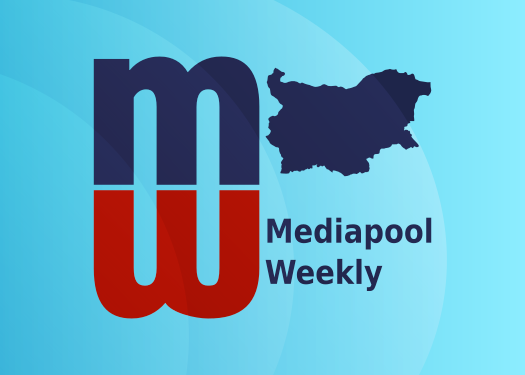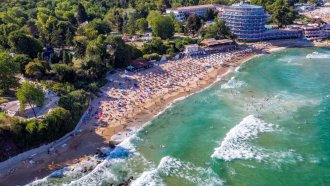Commentary:
If you’re wondering who wants Bulgaria most in Schengen, it’s not Bulgaria. It’s Russia.
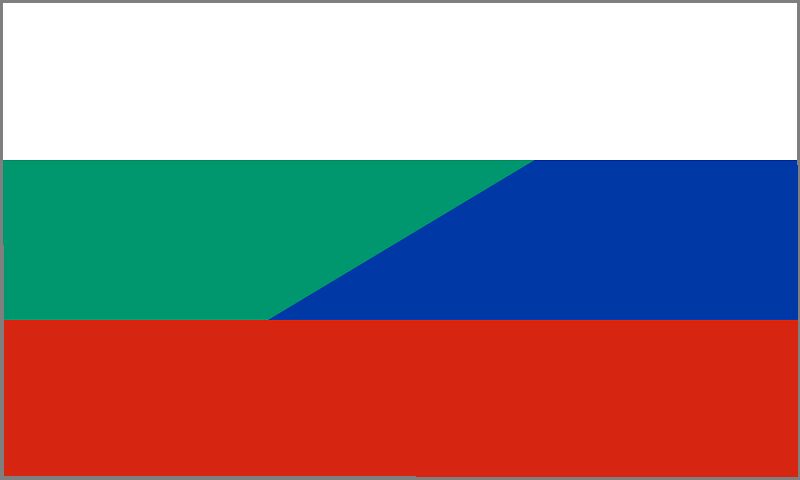
Schengen and the Euro are the last EU structures of which Bulgaria is not a full member. The EU seems to have learnt its lesson from accepting Romania and Bulgaria well before they were ready to join. It was a hard lesson and a decade later, it is almost laughable why anyone would think Bulgaria would catch up on justice reform and corruption after its accession. Not only did it not, it doubled down, its institutions fully captured by oligarch groups with the first among equals the Prosecutor’s Office. As a bonus these interest control most of the media Bulgaria.
But it is one thing to have a contained criminal establishment in a member state. It is another for the entire state to be an agent of a foreign power, and for that power to be Russia.
In 2017 the European Council on Foreign Relations concluded in a report that Bulgaria is Russia’s trojan horse in the EU. The assertion is not an overestimation, be it overdue. After having the country completed the process of state capture by groups and persons with close financial interests, it is only natural for Russia to utilize it in turn. The population has enough natural sympathy towards its formal Soviet occupier. And controlling most of the media also helps a great deal.
Bulgaria has done the role of the Russian agent several times. Sometimes it pushes through Russian interests via its role in energy projects as the South Stream Pipeline Project. Other times it merely means that the PM would go to Brussels on a summit and publicly voice his doubts that Russia is behind the poisoning of Yulia and Sergey Skripal. Which Boyko Borissov did a year ago.
Borissov is one to play it very pro-West and EU, especially when elections are up. But then would visit Putin, humiliate himself and practically beg him for Russian gas for his pet project, the Varna gas hub. Which is something Putin utterly enjoys.
The most recent scandalous and blunt attempt for a Russian operation cover-up has been years in the making and is directly linked to Yulia and Sergey Skripal attack with Novichok.
About the time Russian agents Sergey Fedotov, Anatoliy Chepiga and Alexander Mishkin allegedly poisoned Sergey and Yulia Skripal with the nerve agent Novichok, Fedorov was in Bulgaria. Just then Bulgarian entrepreneur and arms manufacturer and dealer Emilyan Gebrev, along with his son and a senior executive of Gebrev’s company, collapse and are taken to the hospital. Gebrev’s state deteriorates fast and he falls into a coma. According to doctors the poisoning took place on April 28, 2015.
His condition was critical but he eventually recovers and was discharged from the Military Hospital in Sofia. Gebrev himself informed and called on authorities to look into the case as the circumstances were very similar to the ones surrounding the poisoning of Yulia and Sergey Scripal. At the end he personally ordered and paid for an independent analysis of what had poisoned him, his son and his colleague. The chemical analysis, done by the Finish Institute for Verification of the Chemical Weapons Convention finds over ten chemicals in the samples, which are forbidden in the EU. This analysis together with later knowledge about Novichok and the travel patterns of agent Fedorov make it extremely probable Gebrev was the victim of a similar attack and by the same hand as Yulia and Sergey Skripal.
Gebrev himself has said that he cannot explain why he would become the target of Russia. However, he does provide two hypotheses. One is that his company exports defense equipment to the Ukraine. And the other is his control over the arms manufacturing company Dunarit. Dunarit is of strategic importance to Bulgaria and NATO and it would be no wonder that Russia would like to gain control over it. In fact, an offshore company is fighting to take over Dunarit. The investigative journalist site Bivol.bg identified the real owner of that company as the attorney of Movement for Rights and Freedoms and owner of a dozen-controlled media outlets, Delyan Peevski. Bivol’s Atanas Chobanov told Newsweek earlier this week that his reporting suggests that Peevski ‘who has ties to Russian intelligence agents, wanted to take over the company, Dunarit, so he could control Bulgarian arms sales to Ukraine.
Whether or not Peevski is involved, or even Russia, doesn’t change the reckless, unprofessional and clearly biased way in which the Bulgarian authorities have (failed to) handle such an attack on three Bulgarian citizens. And it only makes sense in two scenarios: extreme incompetence or deliberate attempt to cover up an attack by a foreign power, and the apparent collusion or dependency between said power and the Bulgarian political elites and institutions. Both scenarios spell disaster.
After Gebrev notified the Bulgarian authorities of his poisoning and pointing to the similarities with the poisoning of Yulia and Sergey Scripal, the institutions don’t do much of anything. Instead of them following up and taking charge in ordering a chemical analysis, Gebrev does this himself. The investigation is led by normal detectives of the Sofia district police department. One would think poisonings with nerve agents was as common and trivial as car theft. After four years of – one would only assume – exemplary and tireless detective work, the case is still ongoing and there are no visible results.
Mediapool asked the Sofia police department about the case but they refused to give out information on account of the investigation is ‘ongoing’. Not that the information is classified in any way, they clarified. But they feel they shouldn’t give it out anyway.
But what is most clear in the way this story has unfolded is the unambiguous, straight forward and unequivocal loyalty to the Russian side. And the only reason it emerged and gained attention, against all apparent efforts to keep it under wraps is the fact that it broke in the Bulgarian Capital Weekly but (especially) later taken up by foreign media. This disturbed the Bulgarian authorities’ comfortable situation and were finally made to answer about the case. Chief Prosecutor Sotir Tsatsarov said the investigators are working on an attempted murder case. He also went out of his way to undermine the situation.
One of the chemicals found in Gebrev’s sample is a common pesticide, approved in the EU. It is poisonous only in very high doses. As ridiculous as it might seem, he gave it ago: he told journalists that the pesticide was found in the green salad Gebrev was having. The attempt to make it seem like the case is not an attempted homicide, likely executed at the hand of a high-ranking Russian secret agent but instead – a mere unfortunate salad-related incident, was uncanny. And while it did inspire many on social media to joke about it and made a laughing stock out of the Chief Prosecutor, the pro-government media hardly laughed. Peevski’s papers and other close media have been flooding their pages with stories about how the whole Russian connection in the poisoning is a gruesome lie and manipulation. Some of the outlets were keen to explain how, yes, indeed, it is obvious Gebrev was poisoned from eating the salad. Sadly, Tsatsarov had to retract this statement likely due to it being an overkill in its ridiculousness.
The good news is that as of Friday British intelligence officers have arrived to Bulgaria to help out with the investigation into Gebrev’s poisoning. And that is the only reason this investigation might go somewhere. Thanks to the story breaking in foreign media and serious authorities having an interest in the case.
There is a very disturbing and dangerous inclination for Bulgaria to be Russia’s loyal pet in the EU. Or its trojan horse, depending on how it is perceived from outside. And unfortunately, it is not plain sympathy and nostalgy towards communist times (very common in Bulgaria). It is a result of massive financial interests and ties between the Bulgarian oligarchs, who are almost entirely rule the country, and Russia. In a way, Russia is a part of the EU. And surely would love to become a part of Schengen as well.
In other news:
The Parliament passes amendments that render pointless majority element in elections
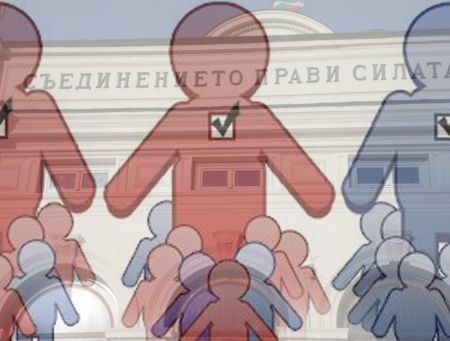
The Parliament passed amendments to the Elections Act, which render pointless the majority element during elections. Bulgaria has a proportionate voting system with a majority element. Voters may vote for a particular candidate in the ballot, who is not the leader in the ticket. This way candidates whom the party placed in an unfavorable position may still win if they get enough preference votes.
The Movement for Rights and Freedoms (DPS) introduced an amendment to the Elections Act, which would render the preference voting option useless. The largest ruling party, GERB, the coalition partner, National Front for the Salvation of Bulgaria, and VOLYA all supported the bill. The Bulgarian Socialist Party voted against the proposal. Another coalition partner, VMRO also voted 'no' and called for the President to veto the bill.
The bill introduces an increased number of votes, needed for a candidate to overtake another, positioned in front of them. The new threshold is impossible to pass in reality. If enacted, the MPs will have in effect repealed the majority element in the voting system. The option will remain as such in the Elections Act but only on paper.
During the debate one BSP MP voiced the concerns over the amendments in a nutshell:
“The people will [know] you are taking away their right to vote for individuals. [If this bill is passed into law] no one could rearrange the [order of the candidates in the] ticket”.
And DPS MP, Hamid Hamid answered even more to the point of what the ruling coalition – official and unofficial alike – aim and feel:
“And why should they?”
Indeed: It is increasingly more important for the parties making up the political establishment for over a decade to gain back full control over who manages to win a seat in Parliament, City Council or the European Parliament. This is especially true for DPS MPs, who introduced the bill. In part it seems ambiguous why GERB is so keen on it. 20 of its 95 current MPs are in Parliament thanks to this system. But it is no secret GERB is not one to enjoy the option. They have tried to up the threshold back in 2016 but couldn't get support from their partners. During the debates GERB were mostly silent, except for a few MPs short speeches.
This silent support for this bill left little room for interpretation on the part of GERB besides having struck some kind of agreement with DPS behind closed doors. Either they plainly want to take away the little intervention power voters have in deciding who gets elected or they’ve agreed to secure the votes in return for something else. Both options are equally disastrous. And both mean that DPS and GERB are unofficial but loyal coalition partners.
The non-parliamentary opposition coalition, Democratic Bulgaria, took to the streets to protest the bill.
The Bulgarian ombudsman Maya Manolova announced she would be taking the amendments to the Constitutional Court.
“The preference [option] becomes absolutely pointless [with these amendments]. … 130’000 votes are needed to change the order in the ballot, which clearly is impossible”., she said.
TheBulgarian desk of the organization Transparency International also condemned the amendments, chiefly for taking place six months before the next elections. The organization says that changes to election rules made so close to elections breach international standards.
“Amendments to the Elections Act, which are done in the eleventh hour without adequate justification and without high level of consensus have always led to unfavorable results, and often to the opposite of what their aimed at – not only for society but for politicians and political parties as well.”, Transparency International writes.
60 million euro transferred to Bulgarian account in Investbank from Venezuela

Venezuela’s state petroleum company Petróleos de Venezuela has transferred the staggering 60 million euro to a Bulgarian bank account in Investbank. The bank wаs not initially disclosed by authorities but was discovered by the investigative journalist site Bivol.bg. The account was opened in accordance with the law but after the story broke the State Agency for National Security (DANS) announced it is investigating money laundering by Maduro’s regime.
The intelligence about the large transfer came from the United States. Chief Proesecutor Sotir Tsatsarov made the announcement on Wednesday after a meeting behind closed doors with the head of DANS, Dimitar Georgiev, PM Boyko Borissov and the U.S. Ambassador Eric Rubin.
Several days earlier, however, an opposition MP in Venezuela was first to announce that Bulgaria was part of a massive scheme to transfer state assets abroad.
Some of the amounts have already been transferred elsewhere before the government froze the accounts.
Bulgartransgaz suspends the tender for Bulgarian section of TurkStream

The tender for the extension of TurkStream through Bulgaria is put on hold, the state-owned gas network company, Bulgartransgaz, announced on Thursday. The reason is a complaint filed at the Commission for the Protection of Competition by the company Atomenergoremont. The complaint has to do with certain clarifications that the state-owned company has provided as part of the tender rules. 2,86 billion leva excluding VAT have been allocated for the tender for the kilometer pipeline
The company Atomenergoremont is linked to the energy sector businessman, Hristo Kovachki. Kovachki owns most of the mines in Bulgaria through offshore companies. He also led a political party in the past and his name has popped up many times in connection with vote buying.
Atomenergoremont is a regular recipient of public contracts for the nuclear power plant Kozloduy but has no experience in gas projects. Previous experience in implementing gas related projects is one of the requirements to enter the tender. It is not unlikely that the move by the company aims to interrupt the procedure and slow it down.
Vice PM and VMRO leader Krassimir Karakachanov threatens to resign
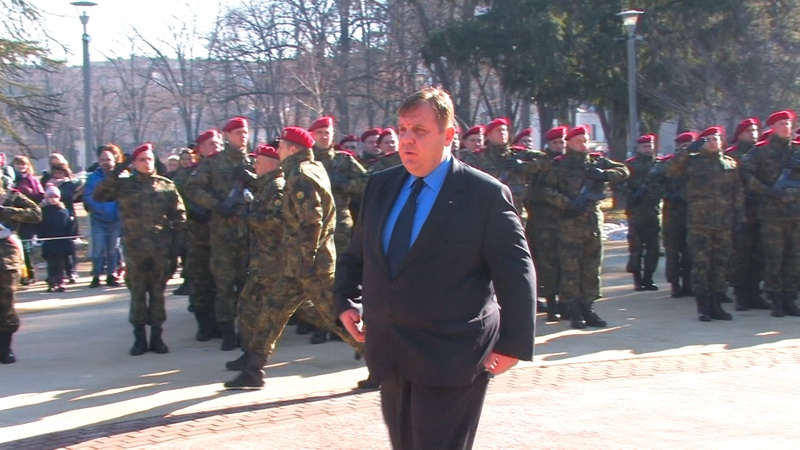
Vice PM and VMRO leader Krassimir Karakachanov threatens to resign if Parliament does not adopt his so-called strategy for Roma integration. Karakachanov presented the document last week. It received backlash for its racism and mostly penal measuresagainst Roma.
VMRO is one of the three far-right nationalist parties, which make up the so-called small coalition the United Patriots. The United Patriots in turn are GERB’s coalition partner in the government. The patriots are a frequent threat for PM Boyko Borissov’s first priority - a stable government - as they are constantly in feuds with one another and any one of them has threatened to leave due to a conflict with another.
The first F-16’s could arrive in 36 months

Vice PM and Defence Minister Krassimir Karakachanov announced on Friday that the deal for purchasing new F-16’s from Lockheed Martin could be reached by late June. The contract would allow for 24 months between signature and supply. According to Karakachanov with the supply deadline, the first F-16’s could be here in 36 months’ time.
Twenty-one measles cases confirmed in Bulgaria

Bulgaria has confirmed 21 cases of measles in the country. By Thursday they were five: One of a 37-year-old woman, the rest - unvaccinated children. The authorities do not rule out other cases emerging in the coming days and weeks. The first child got sick in Bansko, where there are many Macedonian tourists. There is a measles outbreak in North Macedonia since early January.
Ключови думи
За честна и независима журналистика
Ще се радваме, ако ни подкрепите, за да може и занапред да разчитате на независима, професионална и честна информационно - аналитична медия.
 0 коментара
0 коментара
Екипът на Mediapool Ви уведомява, че администраторите на форума ще премахват всички мнения, съдържащи нецензурни квалификации, обиди на расова, етническа или верска основа.
Редакцията не носи отговорност за мненията, качени в Mediapool.bg от потребителите.
Коментирането под статии изисква потребителят да спазва правилата за участие във форумите на Mediapool.bg
Прочетете нашите правила за участие във форумите.
За да коментирате, трябва да влезете в профила си. Ако нямате профил, можете да се регистрирате.
